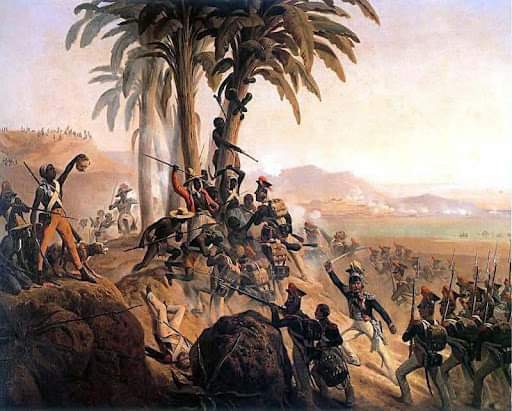
Kimpa Vita didn’t deserve to die, but colonists were threatened by what she knew. But they couldn’t kill the spirit that lived on in the spirits of her people and inspired two of the most famous rebellions in our history.
Kimpa Vita dreamt of restoring her kingdom to what it was before the Portuguese invaded. She was a trained Nganga, a medium to the other world. She used her abilities to consult ancestors to help guide her people toward liberation.
This indigenous knowledge is what scared oppressors the most.
Catholicism had already spread throughout the Kingdom of Kongo in the 15th century. By the 1690s, Italian missionaries stationed themselves in Kongo, declaring civil war on what they deemed to be witchcraft. Vita was targeted.
She resisted and continued her teachings, blending indigenous knowledge and Black Catholicism. When oppressors challenged her, Vita refused to back down from her beliefs that Jesus and the Virgin Mary, whom she revered, were Black.
Colonizers killed Kimpa Vita for her work, but her rebellious teachings burned in her people’s spirits.
Thirty-three years later, 60 Kongolese people enslaved on South Carolina’s coast chanted “Lukangu!” meaning salvation, as they rebelled through the streets, killing enslavers. In another 54 years, a similar word, “Kanga,” was chanted in Haiti on the eve of the revolution.
Kimpa Vita’s teachings never left.
With the current silent genocide happening in Congo, we must remember that our liberation has always been connected. Embracing indigenous knowledge and using it to fuel our liberation movement strengthens resistance and the ways we impact future generations of our people.


